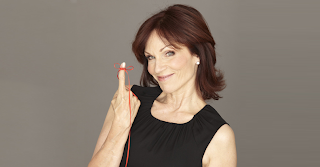 |
| via |
I received a complimentary copy of this book from the publisher in exchange for an honest review.
Full Title: The Other Side of Normal: How Biology is Providing the Clues to Unlock the Secrets of Normal and Abnormal Behavior
Published: 2012
It's about: "In this enthralling work of popular science, respected Harvard psychiatrist Jordan Smoller addresses one of humankind's most enduring and perplexing questions: What does it mean to be "normal?" In The Other Side of Normal, Smoller explores the biological component of normalcy, revealing the hidden side of our everyday behaviors--why we love what we love and fear what we fear. Other bestselling works of neurobiology and the mind have focused on mental illness and abnormal behaviors--like the Oliver Sacks classic, The Man Who Mistook His Wife for a Hat--but The Other Side of Normal is an eye-opening, thought-provoking, utterly fascinating and totally accessible exploration of the universals of human experience. It will change forever our understanding of who we are and what makes us that way." (goodreads)
Wow, what a blurb! I had high expectations for this one.
I thought: I didn't love it. And that's a shame, because it's right up my alley: I love pop science, especially when it's in the psychology/psychiatry/neurology department. And The Other Side of Normal is certainly smart and well-researched. There's a lot of interesting information about the brain and human behavior here. It reads a little like an update for those of us who took AP Psych back in the day but haven't stayed up to speed with current trends in the field.
So why was I falling asleep when I read it? The style itself isn't dull; Smoller writes conversationally and adds appropriate humor, research summaries, and personal anecdotes. But there are also parts in each chapter where he delves into more of the nitty-gritty: molecular biology, epigenetics, anatomy. This book has far more detail about the inner workings of the brain than any other of its type (that I've read) and I'm a little embarrassed that I couldn't always concentrate. In my (and the author's) defense, I did read this during a busy period of my life. I was very, very tired most of the time when I finally sat down to read, and a more alert reader might have had no problem. Still, I can't help but think that in the general populace the audience is pretty small for illustrations like this one:
I did enjoy Jordan Smoller's punny, Dad humor-ish subtitles. Here are some examples: "Facial Profiling," "The Gland That Rocks the Cradle," "Crocodile Fears," and "Mind Your Pleasing Cues." Teehee! I have a feeling that this is one of those books that I'm going to look back on more fondly than what I'm thinking and feeling about it right now.
Verdict: Stick it on the shelf or Rubbish Bin? In between.
Reading Recommendations: Don't be tired.
Warnings: none
Favorite excerpts: [About Big Five Personality tendencies in different states]
"North Dakotans seem to be the most outgoing, friendly bunch of traditionalists you'd ever want to know: they topped the list of all states in agreeableness and extraversion but came in last on openness. On the other hand, Alaska scored at or near the bottom on all five traits, suggesting that the typical Alaskan is a calm but disagreeable and introverted slacker who doesn't like unconventional ideas. If you're looking for open-minded, enthusiastic, friendly neighbors who are emotionally stable and conscientious, your best bet is to move to Utah."
(I'm amused by that paragraph because I have lived in both North Dakota and Utah. By the way, I took the Big Five personality test and it told me that the highest concentration of personality traits similar to my own is found in North Carolina. Guess where I live.)
What I'm reading next: Where Things Come Back by John Corey Whaley





































